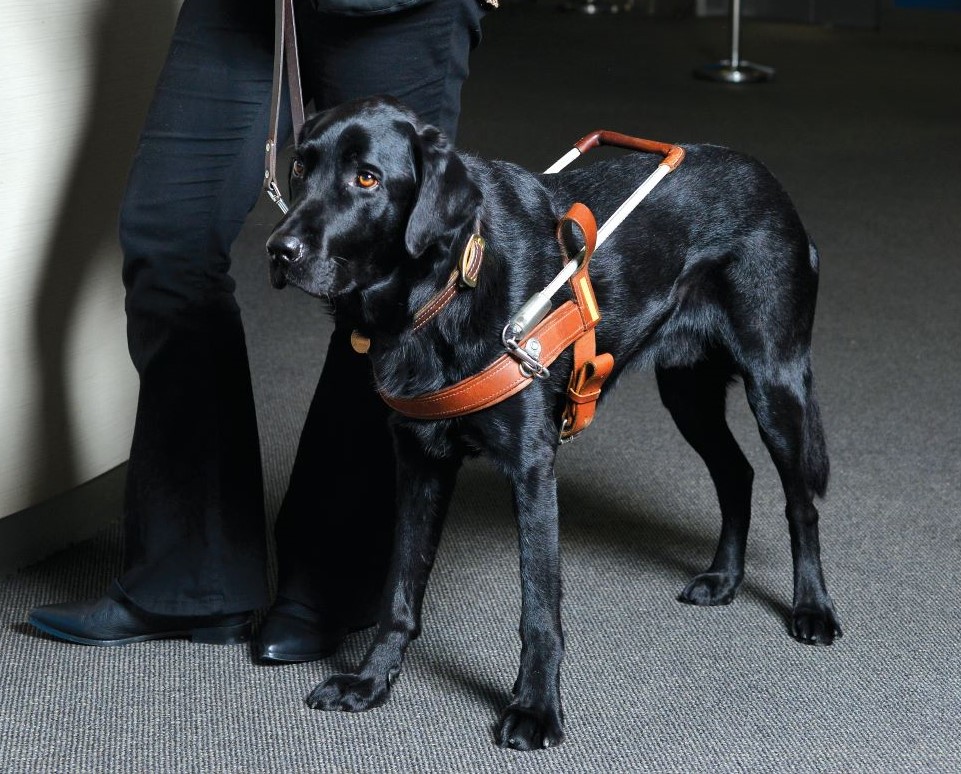New legislation to strengthen animal welfare standards will also provide a more comprehensive framework for those who make use of assistance animals.
The Animal Welfare Legislation Amendment Bill 2019, passed by the ACT Legislative on 26 September, sets out an accreditation framework for assistance animals for the first time in the ACT, dealing with the recognition and right of access of assistance or service animals to public places and premises. This includes assistance animals in training.
Canberra manager of Guide Dogs NSW/ACT, Peter Watson, said they “fully support” the legislation, which he described as “much more comprehensive” than the previous rules, but “the remaining problem that needs to be addressed is public education”.
According to a client survey by Guide Dogs Australia, one in two Guide Dog handlers across Australia report they have been discriminately refused entry to a public place or service because of their Guide Dog in the past two years.
“It is very important that the message is out there and people are clear about what their responsibilities are,” Mr Watson said. Howevere, he acknowledged it is a two-way street.
“If you have an assistance animal, it needs to be fully trained, vaccinated and in a hygienic condition,” he said. “On the flipside, people have to allow them access to places and give them the independent life that dogs allow them to achieve.”
In addition to the changes regarding assistance animals, the Bill also recognises animals as sentient beings in law.
ACT Minister for City Services, Chris Steel, said the laws will “make the ACT a national leader in animal welfare, and reflects a zero tolerance approach to animal cruelty”.
“Modern animal welfare is about considering how an animal is coping both mentally and physically with the conditions in which it lives,” he said. “For the first time under law, we are recognising the science, that animals are sentient, and they feel emotion and pain.”
Mr Steel said people who do not properly care for their animals, such as failing to provide a dog with water or shelter, face new on-the-spot fines.
Under the new laws, if serious animal welfare abuses are committed, the Animal Welfare Authority can impose an interim ownership ban of up to six months. The Authority can also seize, retain, sell or re-home an animal where appropriate. The maximum penalties for serious cruelty offences have also been increased with up to three years jail time for aggravated cruelty.
Pet businesses will also be required to be licensed for the first time in the ACT, including pet shops and boarding kennels, to provide increased protections for animals in their care.
RSPCA ACT CEO Michelle Robertson welcomed the Bill and said the changes would have little impact on responsible pet owners or businesses.
The additions and amendments could, however, have a significant impact on people who continuously neglect or who have no regard for the welfare of animals in their care.
“The team at the RSPCA ACT want to see the absence of cruelty to animals,” Ms Robertson said. “We need strong laws to help protect animals and to deter animal cruelty. We also need strong sentencing to be passed down for animal cruelty offences that will bring consequences for animal cruelty in line with community expectations.”
For more:



